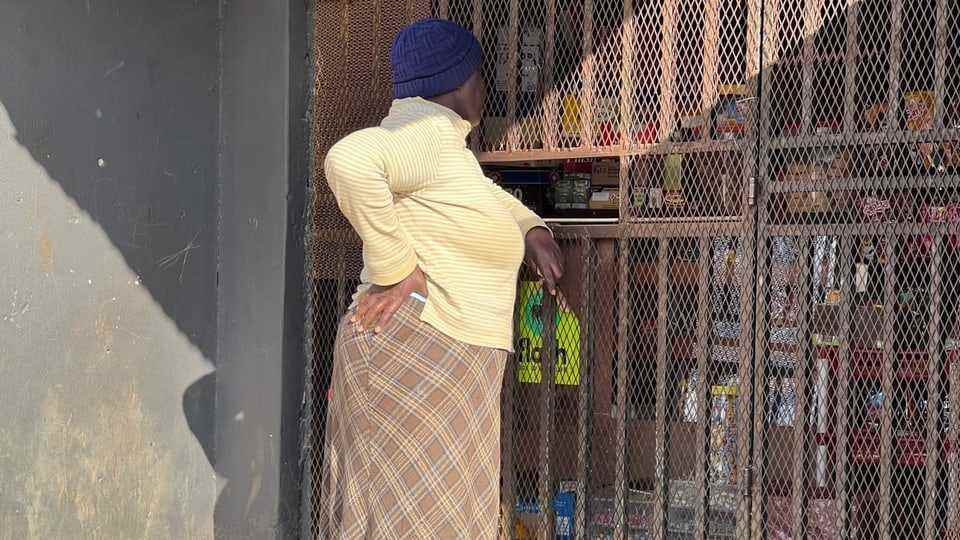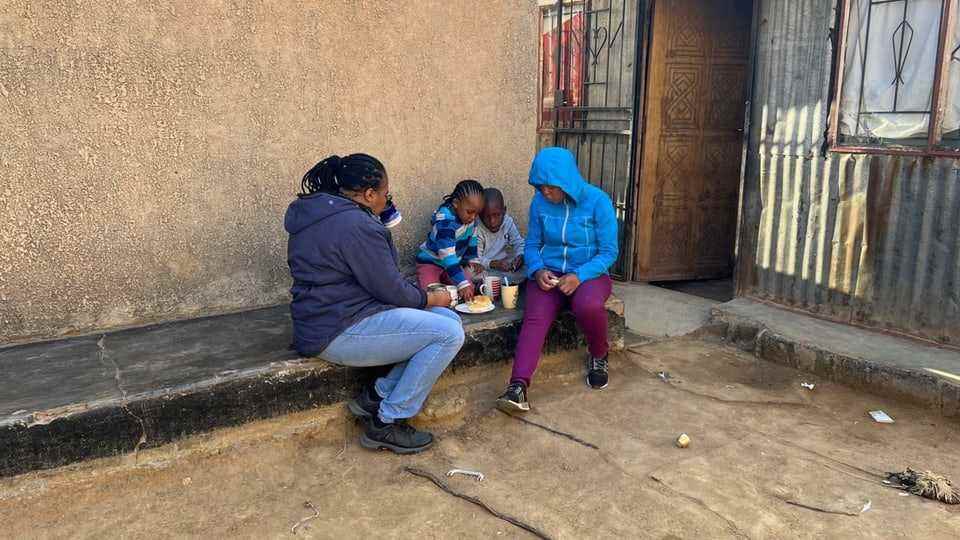contents
Bread and sunflower oil: staple food for South Africa’s poor. Both have been a third more expensive since the Ukraine war.
Lea Qupa is a professional cleaner and a single mother of four. She doesn’t earn much, but just enough to support her family. Until the war in Ukraine came. Since then, the foodstuffs most important to them – sunflower oil, margarine and bread – and a third have become more expensive. “Before the war I could easily buy a liter of oil a month, now it’s only enough for a small bottle, and since we haven’t been able to afford meat for a long time, it’s actually our only source of fat,” she says Local shop in the township of Tembisa near Johannesburg.
She shares her tin hut with five people, she is the only one with a job. Since bread has also become more expensive, she now buys flour because it is enough for several loaves of bread. In the townships, apart from corn porridge, bread with margarine is a staple food. You don’t eat two slices a day here, but five or more. Before she left the hut at five in the morning, she made a dough. She now puts it in the small oven.
Legend:
A staple food: Lea Qupa prepares a bread for her family.
Cristina Karrer
The war in Ukraine affects her everyday life and her already small budget. For example, she no longer has the money to pay for a taxi if she has to take a sick child to the hospital. “We don’t have an ambulance, so we have to order a taxi in such a case, but we don’t have the seven francs for it now. We put our sick children in a wheelbarrow and push them to the hospital,” she explains in her hut.
Fear of hate and xenophobia
Local shops in the townships are often run by Ethiopian, Somali or Pakistani nationals. They have the appropriate networks and often offer their goods cheaper than supermarkets. But since there is latent hatred of foreigners in the townships, they barricade themselves behind bars.

Legend:
A store like a prison: shopkeepers barricade their shops for fear of attack.
Cristina Karrer
Lea Qupa has known the man who sold her the small bottle of sunflower oil for years. Now she is afraid for him. “Distrust reigns here, and many people don’t even know that there is a war in Ukraine and that the oil is imported. They believe that the shopkeepers are behind the price increases and want to make more profit. If this continues with the rise in prices, it is quite possible that they will once again be made scapegoats and their shops will be robbed.”
No financial cushion
Economist Paul Makubane is also very worried about inflation. The Ukraine and Russia are the main exporters of sunflower oil, and this is part of the basic food supply, especially in financially weak sections of the population. “Further price increases are announced, and I don’t know how people who are already struggling to survive will react,” he says.

Legend:
Sparse and expensive: Lea Qupa has bread with tea for dinner.
Cristina Karrer
Makubane says there is reason to fear that unrest could break out like last year, because a large part of the population has already suffered from the pandemic, many have become unemployed, and there is no financial cushion here like in the industrialized nations. But at least the war made it clear that one-sided dependencies must be avoided. “Wheat cultivation can only be expanded here to a limited extent, but sunflowers are not a problem. And that’s what you’re doing in agriculture.”
